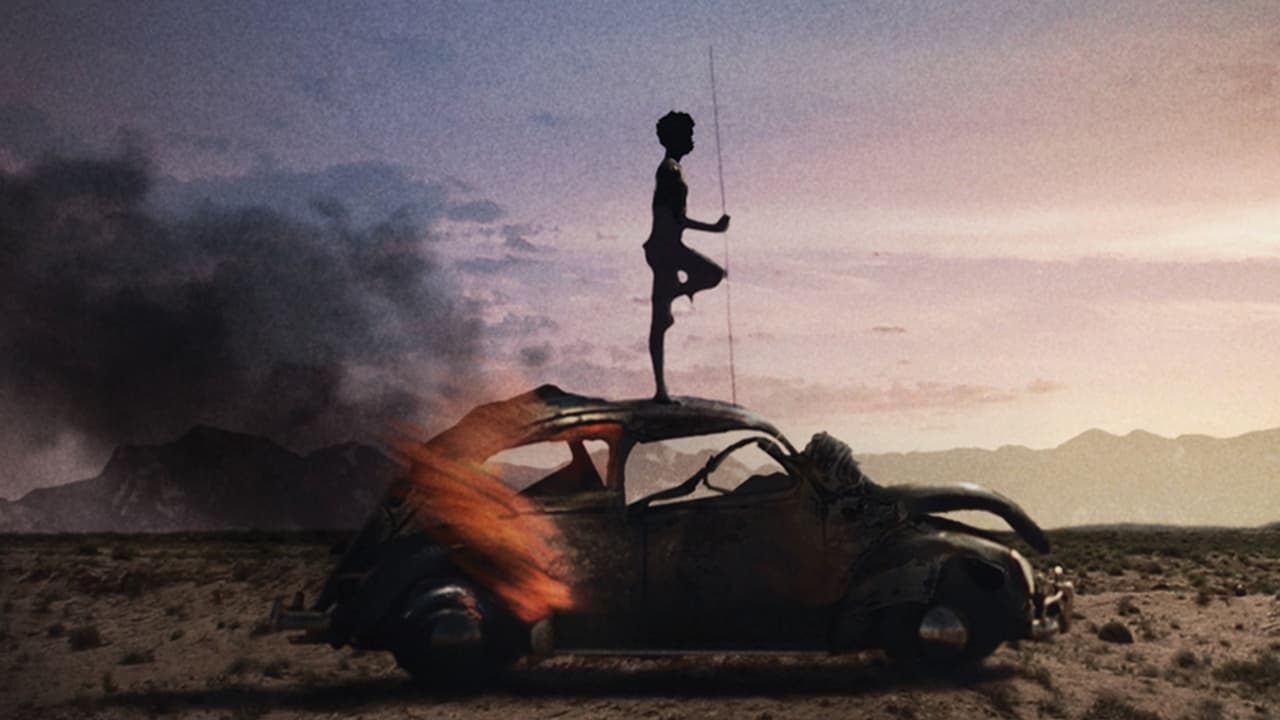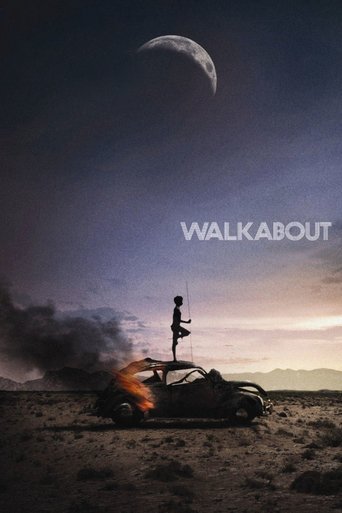

Who payed the critics
... View MoreEach character in this movie — down to the smallest one — is an individual rather than a type, prone to spontaneous changes of mood and sometimes amusing outbursts of pettiness or ill humor.
... View MoreExcellent and certainly provocative... If nothing else, the film is a real conversation starter.
... View MoreIf you're interested in the topic at hand, you should just watch it and judge yourself because the reviews have gone very biased by people that didn't even watch it and just hate (or love) the creator. I liked it, it was well written, narrated, and directed and it was about a topic that interests me.
... View MoreIn 1971, I was walking down Hollywood Blvd one lazy afternoon, and came upon a theater marque that was advertising "Walkabout". I went in the outside lobby area to view the movie poster, glanced at my watch, and decided to kill a couple of hours watching this movie. At the time, I was barely old enough to get in as it was rated R. I remember leaving the theater thinking that Jenny Agutter was an attractive sexy young girl. She was 18 at the time of filming, but was playing a 16 year old HS student in the film. However, After seeing the movie I had no doubt in my mind leaving the theater that the reason for making this movie was exploiting the nudity of the teenage girl playing the lead. I was so young and dumb, I was completely oblivious to the fact that I had just watched scores of beautiful animals being slaughtered for the sake of a movie.Then fast forward 46 years, and I get curious to see the film again, because I read all the compliments here about it, and I wanted to see why.I certainly have no problems with nudity, but this director used it in poor taste, especially considering the implied age of the the lead actress.On my second viewing via DVD, I especially didn't like the super close ups of the breasts of the Aborigines women as they were inspecting the wreckage of a burned out automobile near the beginning. It reminded me of a soft core porn movie with absolutely no reason other than to exploit the fact that the tribeswomen were topless. The closeups were full screen mammary glands, which instantly placed this movie far from the "masterpiece" level.There are only two spots where Jenny Agutter should have been naked. Once when the Aborigines boy is stalking her because he discovers her dressing, finally loses control of himself, and goes into a tribal dance to woo her. The second time her nudity is relevant is the very last flashback shot in the movie, when all three are seen sun bathing nude, having fun, and swimming. The rest of Agutter's nude scenes were gratuitous, and would never pass censorship standards today.However, what really angers me about this movie is the animal abuse. Wild animals indigenous to Australia (including Kangaroos) were beaten, clubbed, stabbed, speared, shot and butchered. You will see no caption anywhere in the credits saying: "No animals were harmed in this motion picture". It is just horrific. I was so sick after viewing the DVD, I stomped it into pieces, and threw it in the trash. I understand that this is a movie about a "walkabout", meaning survival and killing in order to live, however, the senseless real life slaughtering of all of these animals for the purpose of making this or 'any' film is downright disgraceful. If you love animals, PASS ON THIS MOVIE.
... View MoreDespite flaws -- e.g. *very* sporadic and brief moments of didactic heavy-handedness -- this film wins a ten for pure originality and courage, sumptuous visual poetry, general respect for the audience's intelligence, and, perhaps most of all, for bringing the remarkable and thoroughly unique David Gulpilil to a career in film -- he's a revelation. His cultural icon status is well-deserved.I am about the same age as 'Walkabout''s main actors, and saw this film in the theater when it was released in the US in 1972, and saw it again last night (27 March 2017) on DVD. It made quite an impression on me as a kid -- reviewing it 45 years later I realized I remembered every shot save for the few and far-between clunky bits, which long ago my genius editor of a memory left on the cutting room floor of the mind. I do understand why some see the film as a stacked-deck screed re 'primitive indigenous beauty' vs. 'industrial white insanity'. Even were that part of the film-maker's original intent, what happens on the film (I say "on" the film as it is a story told in pictures) transcends any such reductive literal-mindedness. 'Walkabout' absorbed and transformed this humble viewer -- doing things only a film can do.The two-disc DVD I watched last night included excellent commentary by Nic. Roeg, and had a whole reel of extras including a fascinating documentary on Gulpilil as of 2002 I believe. The lean and tireless, elegant mature Gulpilil tells his story in his own words, with occasional commentary by experts on the social context of his career. Toward the conclusion one senses the real-time growing pressure on the subject caught between his traditional culture and the film business/'white-man' world -- his admitted substance and alcohol use, and bitterness at not accumulating the wealth of a 'Hollywood star'. Subsequently I read of his great troubles in recent years, and it is heartbreaking. I pray for him and his family, and trust his strength and giving spirit will prevail.
... View MoreWALKABOUT is quite simply a stunning cinematic experience. Directed and photographed by Nicolas Roeg, it tells of an English schoolgirl (Jenny Agutter) and her brother (Lucien John) getting lost in the Australian outback, and encountering an Aborigine (David Gulpilil), who looks after them and ensures their survival. In an opening title-card Roeg tells us that a "walkabout" is an aboriginal ritual whereby young men leave their families and set out on their own to discover themselves as well as prove their masculinity. In this film all three adolescents are in a sense on "walkabout": while the Aborigine learns to hunt for himself as well as provide nourishment for the other two, the schoolgirl learns to divest herself of her Englishness, as well as her inhibitions, as she swims naked in a rock-pool. Her brother sets aside his worldly toys and learns how to gather leaves, as well as pick up some phrases in Aborigine language so as to be able to communicate successfully.Roeg sets this coming-of-age story within the larger theme of the destruction of the natural landscape by humankind. The film opens on the streets of Sydney, choked with cars and box-like apartments; this contrasts starkly with the wide open expanses of the outback where the sun shines pitilessly all day, and both human beings and animals have to learn how to eke out an existence as best they can. This they achieve partly by cunning and partly by making use of natural resources; by civilized standards, they might seem primitive (for example, the Aborigine's wooden spear) but they are stunningly effective. Brought up in the genteel tradition of public (in American, private) schools, the girl and her brother find the Aborigine's behavior rather distasteful at times, but gradually they learn how to adopt his mores.Yet the Aboriginal way of life, just like the life of the animals that people the outback, is under threat. This is emphasized through a series of violent juxtapositions and stop-frames, as white hunters come in their Land-Rovers armed with shotguns and kill anything that moves indiscriminately. They gut and skin the corpses, leaving the skeletons to rot in the burning sun, infested with maggots. Roeg makes a powerful point by juxtaposing such sequences with more mundane images of a butcher in a city shop cutting meat for customers, as if to remind us of where our weekly meat actually comes from. The film ends with a similar image as the schoolgirl, now unhappily married to a respectable white Australian, is shown cutting meat on a chopping-board while her husband prattles on about his latest promotion at work.The film contains some stunning visual images: the sight of the Aborigine shadowed against the setting sun reminds us of his intimate connection to the land. An aerial pan of the rock-pools, showing the schoolgirl swimming naked (not without a certain amount of scopophilic desire on the director's part) shows how she has happily cast off the trappings of civilization and returned to nature. A long shot of the girl and her brother trying to climb a mountain reminds us of human insignificance in this vast and deserted landscape. And finally, at the end of the film, the three youngsters are shown happily bathing once again the rock pool, all of them naked, all enjoying themselves without a shred of racial or sexual prejudice. This image offers us a glimpse of what could be, if only we were to set aside our perception of (culturally constructed) differences.Even after forty years, WALKABOUT communicates a powerful message to audiences about the importance of communal living as the source of social and moral harmony. A true classic.
... View MoreMuch has been written about the cinematography of "Walkabout" and it's certainly a beautiful film, with amazing visuals of nature in the Australian outback, but also contrasting shots of the built environment of modern civilization. Certainly anyone interested in a visually stunning film should check this out and few will be disappointed.Looking at it as a broader film, it's still very interesting. The story of a brother and sister abandoned in the Australian outback and surviving with the help of an Aboriginal teenager, it feels like an experimental film at times but has a coherent and easy to follow story at its heart. I chose to interpret it as a pretty straightforward story about humans rejecting their simple roots as hunter/gatherers to live in the built, civilized world where meat comes from the butcher, and the regret at having made that trade off, at having given up Eden to live tediously in the city. The film certainly lays on this sort of symbolism heavily. This sort of story might be enlightening if I hadn't seen and read it so many times before, but nevertheless it was done powerfully here and provided me with something to think about.
... View More